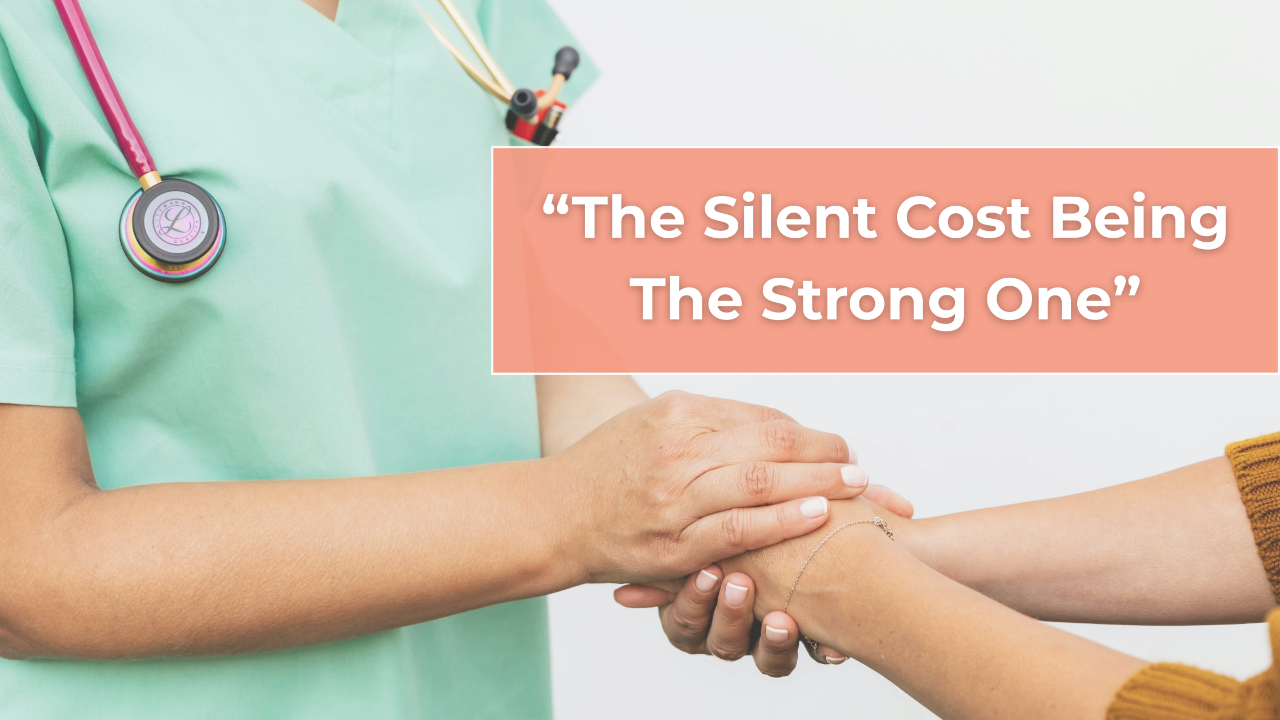Don't Let Trauma Define You: Healthy Coping Mechanisms Can Help
Apr 16, 2023
Trauma can be a challenging experience to overcome. However, with the help of healthy coping mechanisms, you can start managing stress, heal, and eventually move forward. Some healthy coping mechanisms include taking up a hobby, exercising, talking to a therapist or counselor, writing in a journal, spending time in nature, practicing mindfulness, getting enough sleep, and connecting with supportive people.
These activities can help you to express your feelings, unwind, and give yourself a break. They also encourage positive thinking and strengthen your emotional resilience. In addition, many of these activities provide opportunities to build relationships, practice self-care, boost your overall well-being, and help you slowly move towards a more fulfilling life.
Mindfulness is a great practice for enhancing your mental well-being.
It is the practice of focusing your attention and awareness on the present moment with acceptance and without judgment. This simple and powerful technique can help improve your ability to focus and make better decisions. It can also reduce stress and increase relaxation. With mindfulness, you can notice your thoughts and feelings without being attached to them. It is a powerful tool for coping with difficult emotions.
How can you start mindfulness? It’s easier than you may think. You can begin by focusing on your breath and the physical sensations of your body. You can also try to be aware of how you are sitting, seeing, and hearing. With practice, this will become easier.
Overall, some of the benefits of mindfulness include the following:
- Improve focus and concentration
- Reduced stress and anxiety
- Improved sleep quality
- Increased self-awareness
- Improved communication skills
- Increased empathy and compassion
- Reduced rumination and negative thinking
- Improved physical health
The mental health benefits of exercise decrease feelings of depression, anxiety, PTSD, and trauma.
1. Depression
Exercise can be an effective treatment for people with mild to moderate depression and can have the same or similar results as medication but without side effects. Exercise promotes neural growth, reduces inflammation, and releases endorphins, making it a powerful depression fighter. Studies have shown that running for 15 minutes a day or walking for an hour reduces the risk of major depression by 26%.
2. Anxiety
Exercise is an effective anti-anxiety treatment. It relieves tension and stress, boosts energy, and enhances well-being. To maximize the benefit, focus on your body and how it feels as you exercise to break the flow of worries in your head.
3. PTSD and Trauma
To help reduce the symptoms of PTSD, focus on the physical sensations of your body as you exercise. Try activities that involve cross-movement and that engage both arms and legs, such as walking, running, swimming, weight training, or dancing. Outdoor activities like hiking, sailing, mountain biking, rock climbing, whitewater rafting, and skiing can also be beneficial.
4. Other Benefits:
Improved cognitive abilities and increased memory retention
The endorphins that provide a sense of well-being also enhance concentration and mental acuity, aiding in the completion of tasks. Physical activity is known to promote the development of new brain cells and protect against deterioration associated with aging.
Elevated levels of self-confidence
Regular activity is a valuable investment toward your physical, mental, and spiritual well-being. Accomplishing even minor exercise targets will give you a sense of accomplishment and boost your self-esteem regarding your physical appearance. With regular practice, a new behavior can develop, enhancing your confidence and instilling feelings of strength and empowerment.
Improved quality of sleep
Getting in some exercise, even briefly in the morning or afternoon, can aid in maintaining healthy sleep patterns. If you enjoy working out in the evening, engaging in calming activities like yoga or light stretching exercises can assist in inducing sleep.
Increased levels of energy
Regularly elevating your heart rate can provide you with a surge of energy. Begin with a brief workout routine for a couple of minutes each day and gradually intensify it as you start feeling more invigorated.
Increased resilience capacity
Physical activity can be a powerful tool in helping you overcome mental or emotional obstacles. Instead of turning to harmful substances like alcohol or drugs, which often exacerbate your symptoms, exercise empowers you to cultivate resilience and manage your difficulties positively and healthily.
Incorporating consistent physical activity into your routine can enhance your immune system and mitigate the effects of stress.
Getting involved in group exercise classes or yoga is also valuable in creating a connection to others and yourself while providing your body the needed movement to release the energy stored after trauma.
The role nature plays in healing trauma.
Studies have demonstrated that time in nature can boost one's sense of well-being and contentment in life, decrease inflammation, decrease materialistic tendencies and the urge for monetary gain, foster generosity and cooperation in individuals, and bolster a sense of connectedness with others.
Research indicates that awe experienced when in nature is the emotion that significantly decreases stress and enhances positive functioning.
If you are in the Oregon area, I started a monthly hiking woman’s meet-up, and you register here to get information on upcoming hikes. They are on the 1st Saturday of every month.
If you are not in the area, consider starting one and ask people in your community to join you!
Journaling can be an essential part of a holistic approach to healing.
A researcher from the University of Rochester Medical Center suggested expressive writing benefits individuals on a healing journey from loss, grief, and addiction or those seeking personal growth. By practicing expressive writing, one can positively improve their emotional well-being.
Here are some of the critical benefits of journaling:
1. Reduce stress and anxiety
Journaling allows individuals to express their thoughts and feelings, which can help to alleviate stress and anxiety. By writing down their worries, individuals can process their emotions and gain clarity by writing down their worries.
2. Enhancing self-awareness
Journaling can help individuals better understand their thoughts, feelings, and behaviors. By reflecting on their experiences in writing, individuals can identify patterns in their emotions and gain a deeper understanding of their inner selves.
3. Boost creativity
Journaling is an excellent way to explore creativity and expand one's imagination. Individuals can generate new ideas and insights through free writing and brainstorming exercises.

4. Improve memory and learn
Journaling can help individuals retain information and reflect on their growth. By documenting their experiences and observations, individuals may be better able to remember and apply this knowledge.
5. Fostering resilience
Journaling can help individuals develop strength and cope with difficult situations. By documenting their struggles and reflecting on how they overcame them, individuals may be better equipped to handle future challenges.
For an overview, individuals can lead happier, healthier lives with just a few minutes of writing each day:
- Decreases depression and anxiety.
- Assists in identifying and prioritizing fears and apprehensions.
- It offers a chance to identify triggers.
- Creates room for optimistic support and constructive self-dialogue.
- Enhances the sense of happiness and contentment.
- Improves communication skills.
- Boosts creativity.
- Enhances critical thinking.
- Reduces stress.
- Enhances memory.
- Provides a sense of achievement.
- Encourages lifelong learning.
- Regulates blood pressure.
- Improves immune system performance.
Recommendations from the therapy journal training center for those who keep journals:
- Maintain confidentiality.
- Meditate before writing.
- Make sure to hold onto and revisit your written work.
- Grant yourself the authority to be honest with yourself.
- Express yourself in the way that feels most comfortable and effective.
- Date each entry, so you can track when certain events occurred and your growth and progression over time.

There is no one-size-fits-all answer to what coping mechanism is best. Try out different ones to see what is most helpful for you.
If you’re subscribed to the blog, today you received some breathing techniques and a 5-day mindfulness challenge. If you have not subscribed, do it now so you do not miss out on the FREE resources each week’s blog provides.
xoxo, Megan
PS. Make sure you subscribe to get our blog to your inbox! Each week the blog will be sent to your inbox with a FREE resource related to the topic to help you on your trauma transformation journey. Like & follow us on social media for additional content to encourage, inspire, and support you.
View The Entire Collection
See all our blog posts to discover valuable insights and tools for navigating trauma and healing with guidance and support.


















